|
A couple of days ago, I gave an interview on the role and career of an IT consultant (in German). The interview has now been published in the HI:TECH CAMPUS magazine. The second volume of Digitalization Cases presents a rich compilation of real-world cases on digitalization, aiming to share first-hand insights from renowned organizations and to make digitalization tangible. With all economic and societal sectors being challenged by emerging technologies, the digital economy is highly volatile, uncertain, complex, and ambiguous. It confronts established organizations with substantial challenges and opportunities.
Against this backdrop, this book reports on best practices and lessons learned from organizations that succeeded in tackling the challenges and seizing the opportunities of the digital economy. It illustrates how twenty organizations leveraged their capabilities to create disruptive innovation, to develop digital business models, and to digitally transform themselves. These cases stem from various industries (e.g. automotive, insurance, consulting, and public services) and countries, covering the many facets that digitalization may have. As all case descriptions follow a unified template, they are easily accessible for readers and provide insightful examples for practitioners as well as interesting cases for researchers, teachers, and students. The book is available here. Know your customer (KYC) processes place a great burden on banks, because they are costly, inefficient, and inconvenient for customers. While blockchain technology is often mentioned as a potential solution, it is not clear how to use the technology’s advantages without violating data protection regulations and customer privacy.
In a recent research project, we demonstrated how blockchain-based self-sovereign identity (SSI) can solve the challenges of KYC. We followed a rigorous design science research approach to create a framework that utilizes SSI in the KYC process, deriving nascent design principles that theorize on blockchain’s role for SSI. Please read more about our research in our latest paper published in Information & Management (50 days' free access). Driven by the ongoing emergence of digitaltechnologies, today's business environment is changing at tremendous speed. Thus, incumbents have initiated #digitaltransformation programs to cope with the associated challenges. While transformation programs are typically associated with punctuated change, emerging research conceptualizes digital transformation as an ongoing process that demands new approaches to organizational change. Hitherto, we lack insights on how organizations prepare themselves for such continuouschange.
Thus, we conducted an explorative interview study with 29 interview partners that provide insights from different roles, organizations, and industries. Thereby, we gained an overview of organizations' digital transformation realities and challenges. We contribute to the existing literature on digital transformation by elucidating the individual foci and interdependencies of digital, agile, and cultural transformation. Further, we shed light on additional elements that foster continuous change, i.e., organizational culture, purpose, vision, and values in the context of digital transformation. Please read more about our research in our paper “Everything Is IT, but IT Is Not Everything – How Organizations Manage Their Digital Transformation Towards Continuous Change” which has been accepted for presentation at the 42nd International Conference on Information Systems (ICIS 2021) that takes place from December 12 to 15 in Austin, Texas. Companies across industries aim to disseminate blockchain through respective projects that evaluate, design, or implement use cases. However, due to its novelty and complexity, blockchain poses novel challenges in carrying out such projects. Companies use success criteria to constantly evaluate projects. Even though literature provides frameworks for the general evaluation of projects, no research yet investigated if success criteria fundamentally differ for blockchain projects due to the characteristics of the technology.
Therefore, we assessed success dimensions and criteria, deduced and evaluated from an in-depth interview study with blockchain experts from 12 different projects. We contribute to the theory on blockchain project management by introducing a new success dimension and specific success criteria for blockchain projects. Our findings help to elaborate the value of blockchain in companies and novel possibilities to evaluate respective projects. We provide additional insights by assessing their relative importance and discussing implications for theory and practice. Please read more about our research in our paper “You Can't Manage What You Can't Define: The Success of Blockchain Projects Beyond the Iron Triangle” which has been accepted for presentation at the 42nd International Conference on Information Systems (ICIS 2021) that takes place from December 12 to 15 in Austin, Texas. IS research emphasizes that blockchain requires trust in the technology itself. However, we lack knowledge on the applicability of established trust cues to blockchain technology. Thus, our research objective was to empirically evaluate the effectiveness of several established IS trust formation factors on end user trust. We did so by conducting a between-groups experiment.
While we could validate the applicability of previous IS trust research for blockchain technology to some extent, we found that trust signals emphasizing the technology’s underlying trust-building characteristics are most effective. Hence, we highlight the need for contextualization of trust research on blockchain technology. We provide both researchers and practitioners with insights for building trustworthy blockchain applications that enable trust-less interactions not only in theory but in practice. Please read more about our research in our latest #IJIM paper (50 days' free access). Three papers from my research group at Frankfurt University of Applied Sciences, University of Bayreuth, Research Center Finance & Information Management and Fraunhofer FIT have been accepted for presentation at the 55th Hawaii International Conference on System Sciences (HICSS-55) which will take place January 4-7, 2022:
Our whitepaper "Self-Sovereign Identity - Basics, Applications and Potentials of Portable Digital Identities" is now also available in English. We present the most important conceptual and technological foundations of SSI based on four case studies.
Please feel free to forward our whitepaper to people for whom it might also be of interest. You can download the paper as PDF here. In case you have any questions, please do not hesitate to reach out. We hope you enjoy reading the whitepaper! When crafting a digital strategy, how do you make sure that all relevant internal experts end up pulling in the same direction?
The answer is in the way you prepare for the strategizing process. In a study that has just been accepted for publication, Benjamin Müller and I are able to reveal the critical steps that teams of functional experts had to go through to build a solid foundation for digital strategizing. Through a series of case studies, we not only provide detailed insights into procedures that positively impact an organization’s ability to strategize digitally, but also show how these procedures help pull the teams together – an important catalyst for successfully implementing digital strategies. Read our full study as an open access publication here. |
Archives
April 2024
|
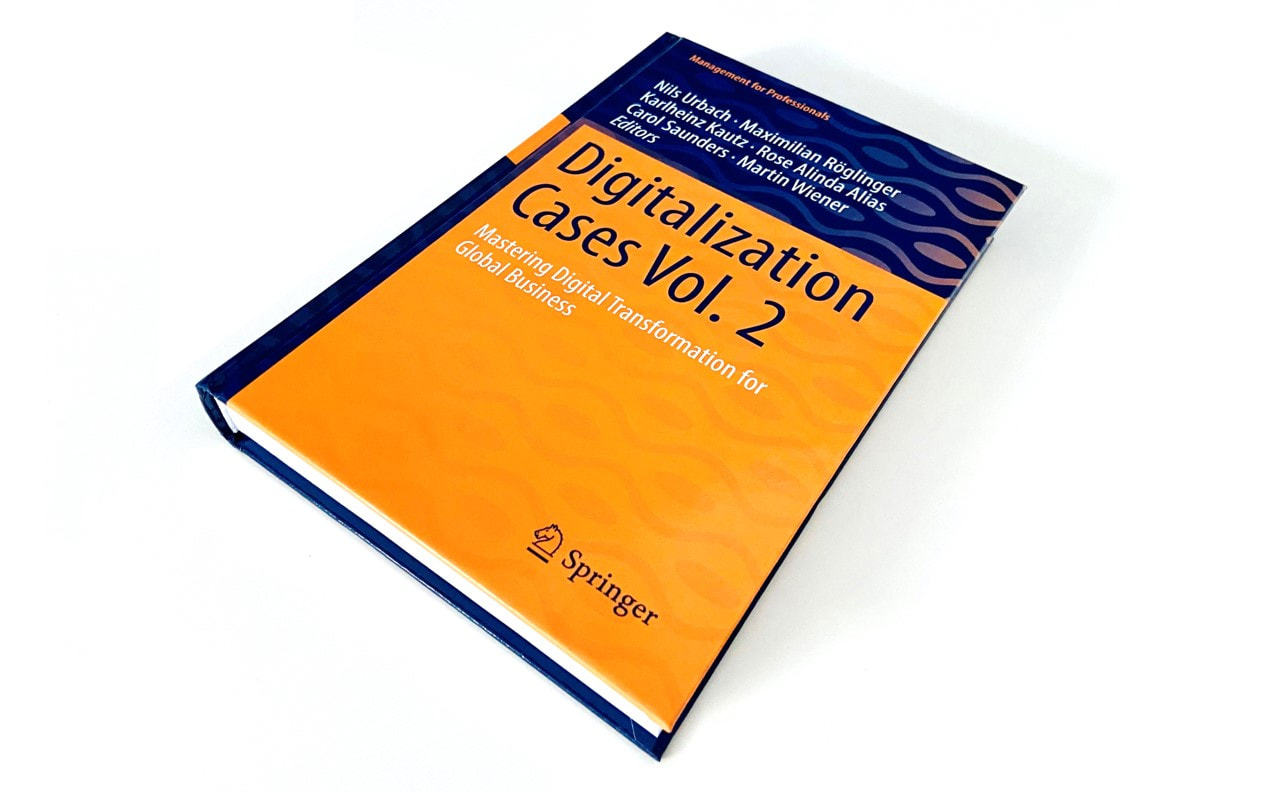
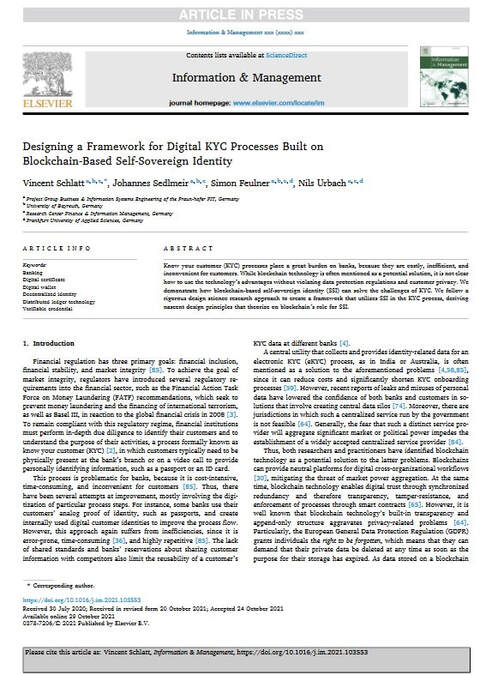
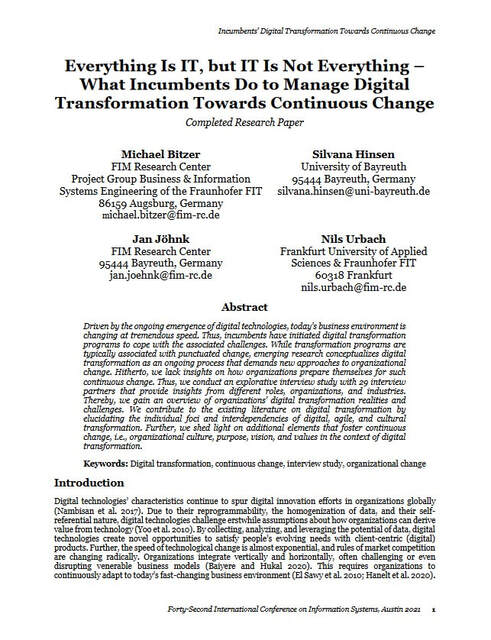
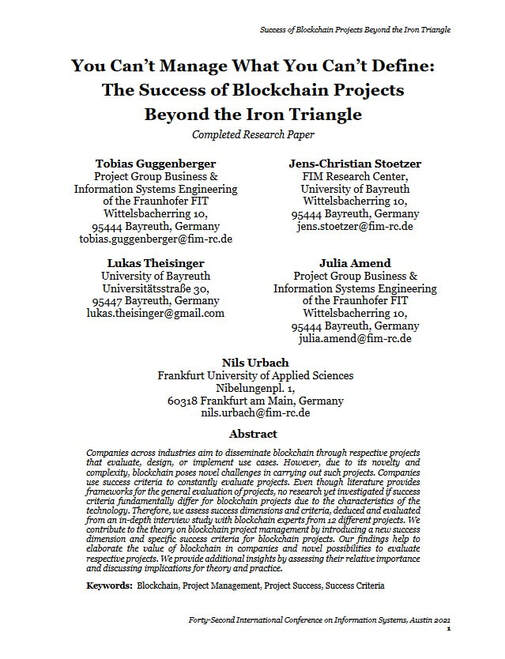
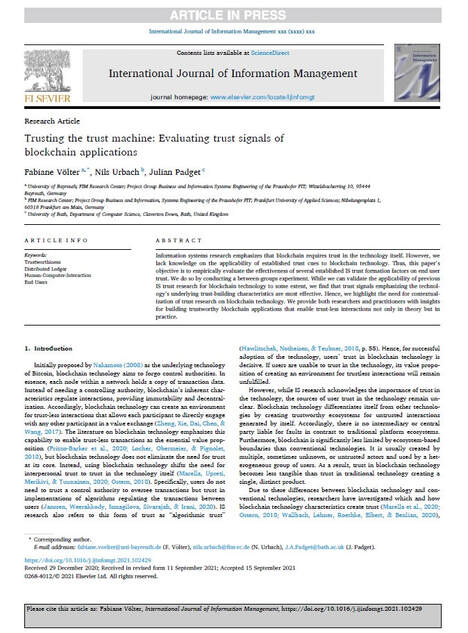
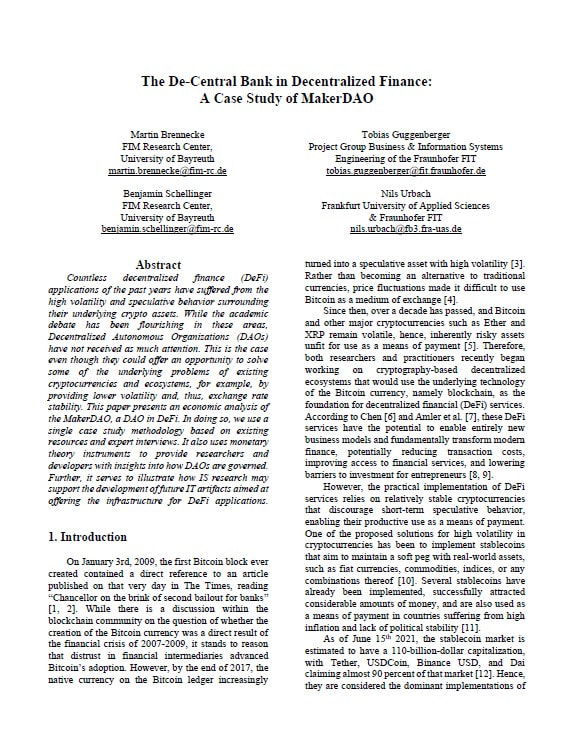
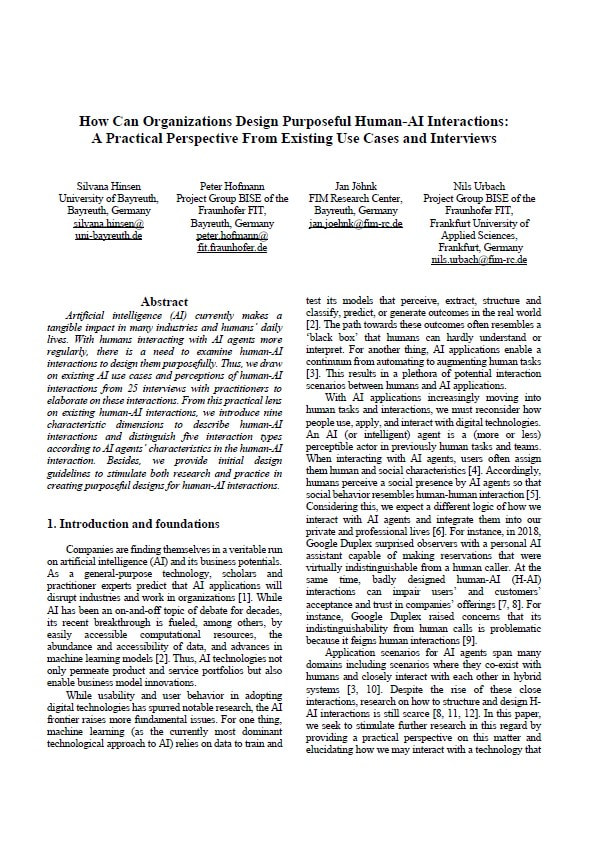
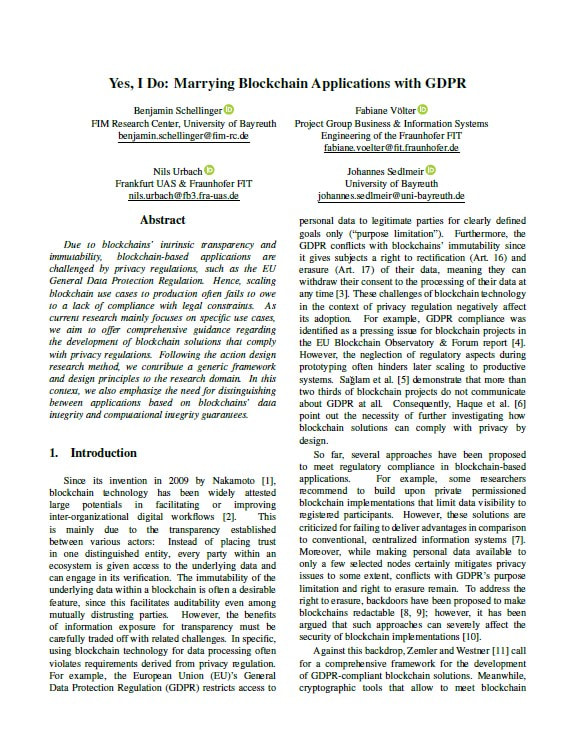
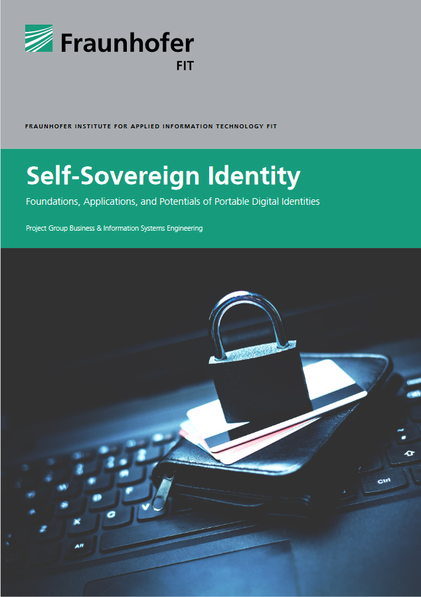
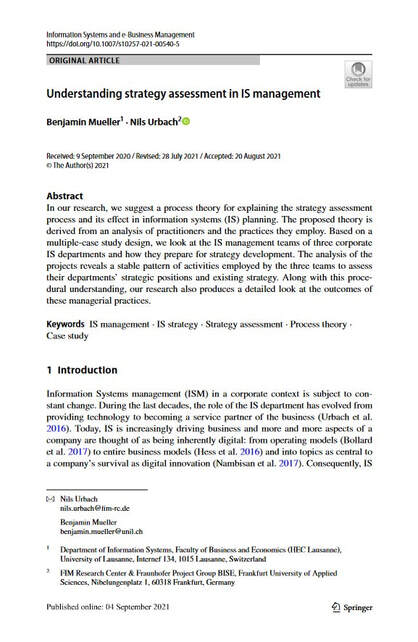
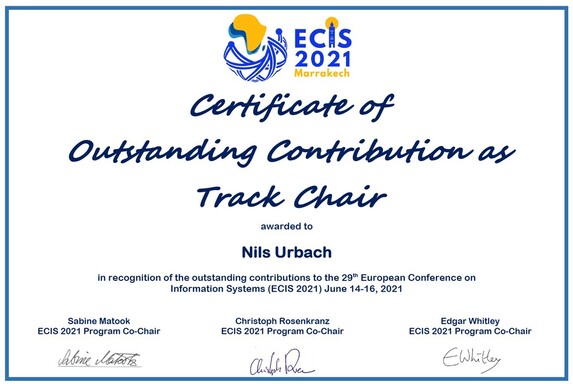
 RSS Feed
RSS Feed